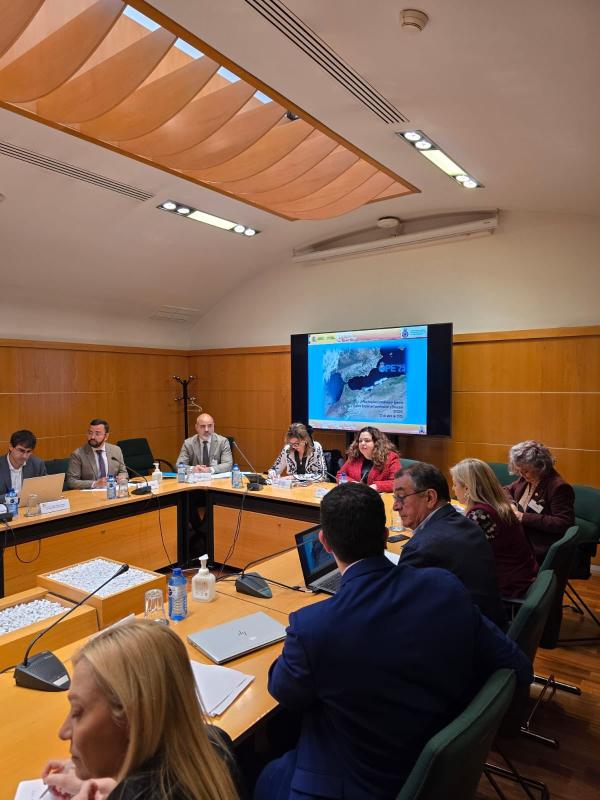The undersecretary of the Ministry of the Interior, Susana Crisóstomo, presided on Tuesday the meeting of the State Coordination and Management Committee (CECOD) that has approved the special plan of the 36th edition of Operation Paso del Angolo (OPE).
Crisóstomo, who has been accompanied by the General Director of Civil Protection and Emergencies, Virginia Barcones, has highlighted this operation as “an example of international cooperation, strategic planning, prevention, operation and human commitment” to facilitate the largest transit of these characteristics in Europe “and one of the most important in the world”.
For three months, between 15 June and 15 September, more than three million people and more than eight hundred thousand vehicles will cross between Europe and North Africa, both by road and by sea. “Our goal is to provide all travelers with an adequate and proportionate response to the demand for the services and infrastructure they require and to plan the coordination of all necessary actions in the event of an emergency,” explained the undersecretary.
Forecasts for this year point to a 5 percent increase in the number of vehicles compared to the previous year and a more moderate increase in the number of passengers, which could be around 4 percent.
Historical maximum at OPE 2024
2024 ended with a historic vehicle traffic figure that exceeded 2023 data by 9.3 percent and was the highest recorded since the existence of this operation. Since 1986, the OPE has been managing the return and return transit of citizens of Maghreb origin who travel from various countries in Europe to North Africa during the summer season.
The General Director of Civil Protection and Emergencies has highlighted “the coordinated and effective effort” that involves twenty agencies of the General Administration of the State, in addition to different entities of autonomous communities and local corporations.
The OPE 2025 Special Plan comprises an extensive device that includes a Fleet Plan, the central axis of the operation, which establishes the number of ships and their capacity, as well as the number of trips necessary to ensure the smooth passage of vehicles and passengers. It also includes the provincial coordination plans and each of the nine ports involved: Algeciras and Tarifa, in Cádiz; Almería, Málaga and Motril (Granada), Alicante and Valencia (Comunitat Valenciana), Ceuta and Melilla; as well as specific road safety plans.
The CECOD held this Tuesday in Madrid was attended by representatives of the Ministry of the Interior, the Secretary of State for Security, the Directorates-General for Civil Protection and Emergencies and Traffic, as well as the National Police and the Civil Guard.
Officials from the Department of National Security and Presidency of the Government, the Ministries of Foreign Affairs, the European Union and Cooperation, Transport and Sustainable Mobility, Territorial Policy and Democratic Memory, Ecological Transition and Demographic and Health Challenge, as well as government delegations in Andalusia, the Valencian Community, Ceuta and Melilla have also participated.
